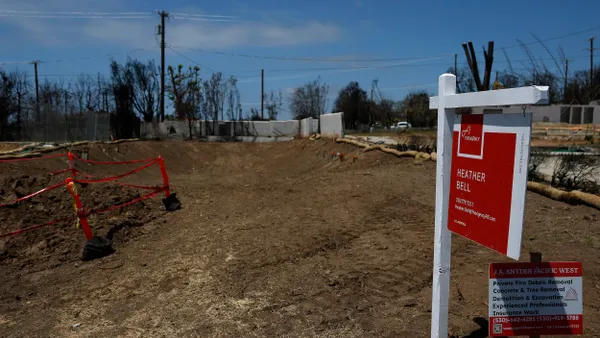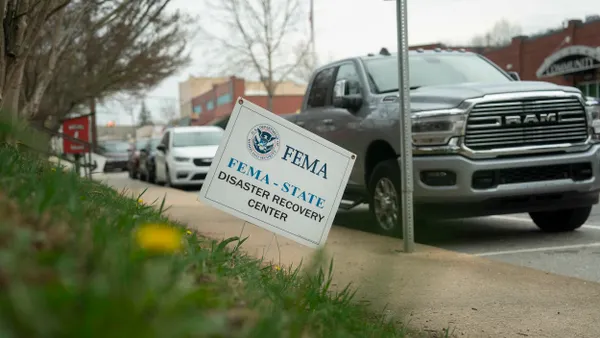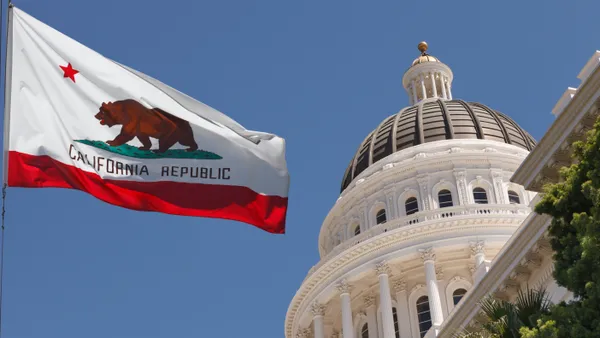Dive Brief:
- Bloomberg Philanthropies has named Charlotte, NC as the latest winner of the American Cities Climate Challenge. Only one of the 20 slots remains to be filled.
- Bloomberg noted Charlotte's climate action plan that is designed to reduce air pollution and emissions from transportation and buildings. The city intends to upgrade municipal fleets to electric vehicles (EVs) and increase community-wide access to public transportation by 41% in addition to implementing policy changes to address sprawl and create new financing programs for energy efficiency and renewable energy projects.
- Winning cities will receive technical assistance and support, valued at $2.5 million, to implement their plans and achieve their carbon reduction goals.
Dive Insight:
Bloomberg gradually has been releasing the names of the winning cities for the $70 million challenge, with 18 already announced throughout the fall: Atlanta; Boston; Chicago; Cincinnati; Columbus, OH; Honolulu; Indianapolis; Los Angeles; Minneapolis; Philadelphia; Pittsburgh; Portland, OR; Saint Paul, MN; San Diego; San Jose, CA; Seattle; St. Louis and Washington, DC.
Former New York Mayor and current UN Secretary-General’s Special Envoy for Climate Action Michael Bloomberg is a big proponent of cities taking action to promote a sustainable future and tackle climate change. He puts his money where his mouth is as far as funding the American Cities Climate Challenge and other programs. That's a huge benefit to cities that want to take steps to curb emissions and mitigate climate change because such programs can be expensive to implement and municipal budgets are notoriously short on extra funds.
Reducing transportation emissions is a common theme among the winning cities. Bloomberg says the combination of transportation and building emissions makes up an average of 80% of a city's carbon emissions.
Charlotte has taken a number of steps over the past few years to boost its sustainability and resilience. It launched Circular Charlotte this fall to create a circular economic model that promotes zero waste and economic development. This year the city also was chosen to take part in the National League of Cities' racial equity and healing initiative. That program aims to identify institutional racism and come up with solutions, which should increase equity within the city as well as overall resilience.
Equity is an important aspect of climate action plans as well because studies show low-income and underserved neighborhoods bear a disproportionate share of environmental burdens. For example, low-income neighborhoods often have less public green space and more highly-trafficked thoroughfares or industrial areas, so pollution is higher there. Charlotte would be wise to implement its environmentally-focused transportation plan in an equitable manner throughout the city so all residents can reap the benefits.










